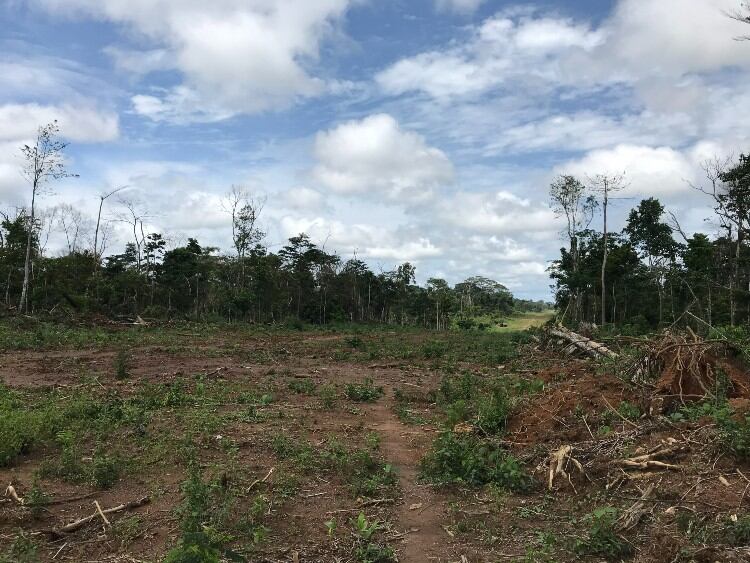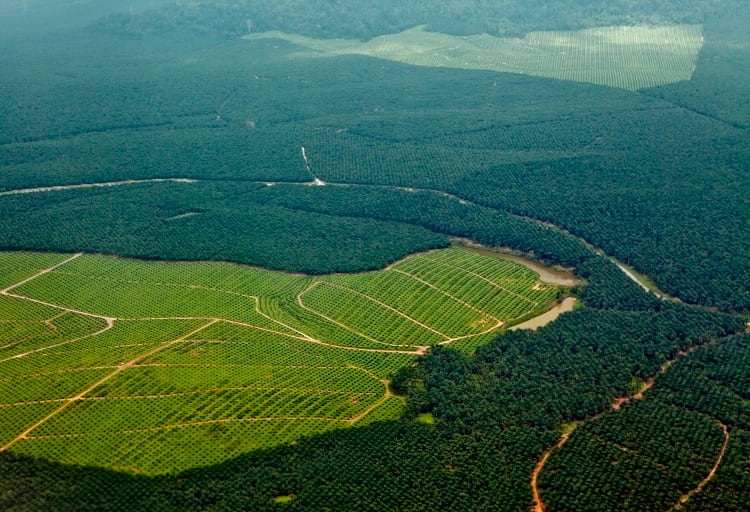The new data analysis by Mighty Earth contained in Sweet Nothings: How the Chocolate Industry has Failed to Honor Promises to End Deforestation in Cocoa Supply Chains, reveals that even after the industry published action plans in 2019, Côte d'Ivoire lost 19,421 hectares – 74.9 sq. mi. – of forest within cocoa growing regions and Ghana lost 39,497 hectares – 152.5 sq. mi. This amounts to a combined area equivalent to the size of the cities of Madrid, Seoul or Chicago.
“This report unwraps the unsavoury side of the cocoa industry and shows the urgent need to break the link between chocolate products and deforestation,” said Glenn Hurowitz, CEO of Mighty Earth. “Chocolate companies like Nestlé, Hershey’s, Mondelez and Mars need to stop making empty promises and start working together with governments in the CFI to establish an open and effective joint deforestation monitoring mechanism this year.”
All of this devastation is entirely preventable and should have been addressed long ago -- Souleymane Fofana, General Coordinator, RAIDH
Mighty Earth, whose remit is to ‘defend a living planet’, said Côte d'Ivoire and Ghana are estimated to have lost 80% to 90% of their forested area over the last few decades, in large part to make way for cocoa farms.
Through a combination of satellite data analysis and on-the-ground field investigations, Mighty Earth has uncovered evidence of ongoing tropical forest clearance for cocoa. This includes deforestation in designated protected areas that provide vital habitats for endangered wildlife – such as chimpanzees and pygmy hippos. These forests are also critical carbon sinks, vital for slowing both the climate crisis and biodiversity loss.
Other key findings of the comprehensive report include:
- In Ghana, 2020 tree cover loss countrywide was 370% higher since January 2019 than it was between 2001-2010, and 150% higher than the average tree cover loss between 2011-2019.
- Average countrywide tree cover loss in Côte d'Ivoire has been 230% higher in the period since January 2019 than it was between 2001-2017, and 340% higher than the average loss during the 2000s.
- Deforestation is still found throughout protected areas in Côte d'Ivoire and Ghana, with satellite data analysis and observations from Mighty Earth’s field investigation in Côte d'Ivoire revealing that cocoa expansion is playing a major role in this encroachment.
“All of this devastation is entirely preventable and should have been addressed long ago. Meanwhile, forests continue to disappear, endangered species die, and communities suffer,” said Souleymane Fofana, General Coordinator of the Ivorian Human Rights organisation (RAIDH).
“The cocoa industry has the same tools and far more resources than Mighty Earth to track and prevent deforestation, but limited willpower and lack of transparency and accountability continue to be the biggest roadblocks to progress.”
Cocoa supply chains
The report’s recommendations include chocolate companies, cocoa traders, and governments pooling information about cocoa supply chains, and couple this with satellite data imagery to establish an open and transparent joint deforestation monitoring mechanism in 2022.
“Such a mechanism would provide the means for collective action to prevent forest encroachment from cocoa expansion, as well as to target initiatives aimed at improving livelihoods for smallholder farmers in Ghana and Côte d'Ivoire,” the report authors said.
Mighty Earth also recommends that CFI should publicly report progress in reducing deforestation in Ghana and Côte d'Ivoire, with the aim of achieving zero new deforestation for cocoa within two years – and has called on leading chocolate companies and cocoa traders to play an active role in the restoration of degraded forests and biodiversity in Ghana and Côte d'Ivoire.
“They should commit to sourcing at least 50% of their cocoa from agroforestry by 2025, and work with cocoa cooperatives and government agencies to help smallholder growers manage the transition from cocoa monocultures to diversified farming systems,” the report states.
Mighty Earth also flags up the need for more legislation from authorities in the European Union, Japan, and the United States, that “requires companies to conduct thorough due diligence checks to prevent cocoa or cocoa-derived products linked to deforestation from being imported into their consumer markets.”
“The Cocoa and Forests Initiative has lots of potential but currently is not living up to it. It promised so much but is failing to deliver. Cocoa and chocolate companies have a duty to protect the environment or risk losing the commodity they depend on forever because the current situation is unsustainable,” said Obed Owusu-Addai, Managing Campaigner at EcoCare Ghana.


